Miscommunication and unnecessary clashes among various stakeholders and experts are the biggest obstacles to developing biotechnology and food security in the Global South.
This emerged during a rare meeting of lawyers, regulators, and scientists in Nairobi on August 24, 2023.
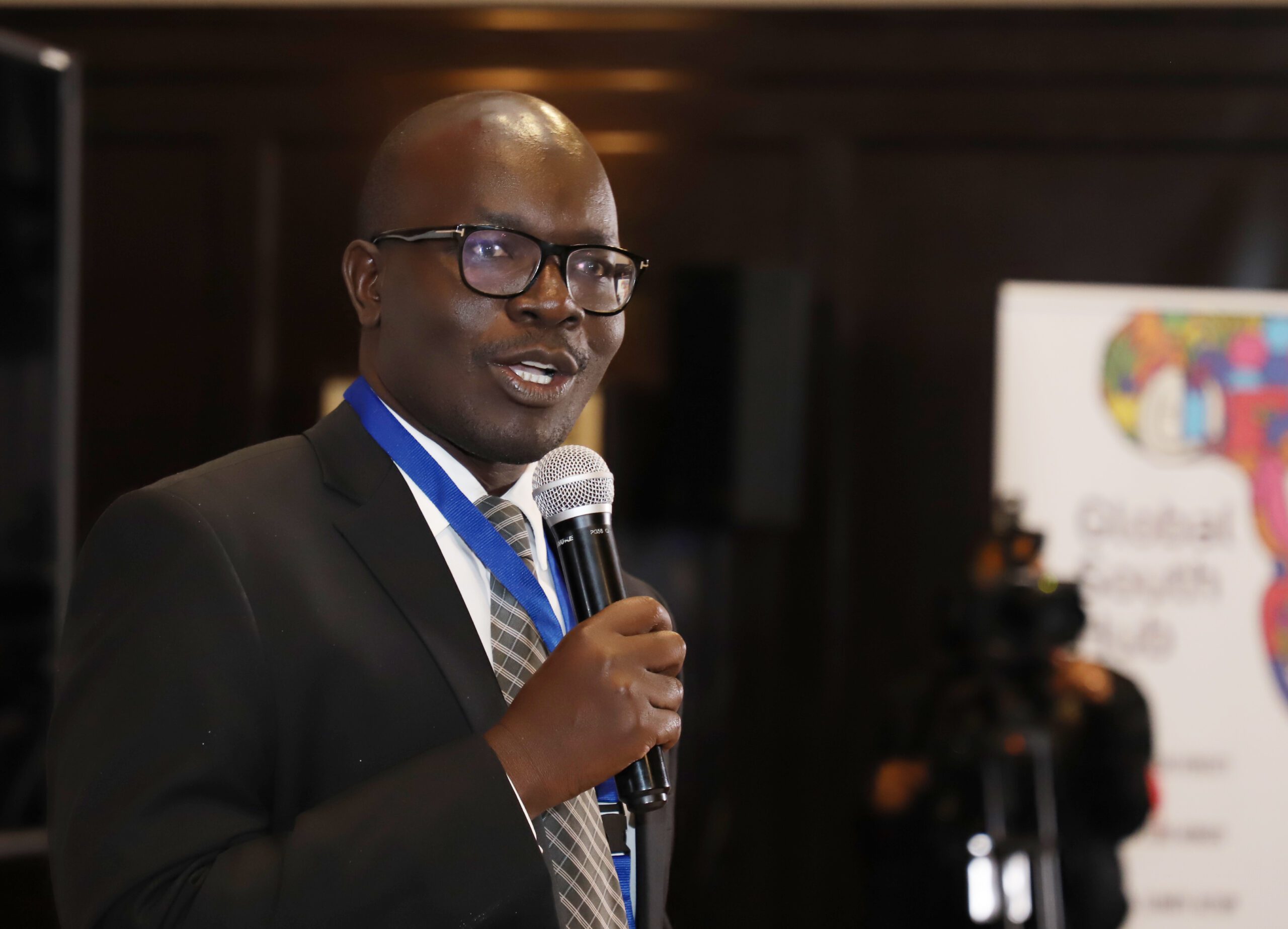
Professor Collins Odote, the chair of the Association of Environmental Law Lecturers in African Universities (ASSELLAU), said the problem with the debate on genetically modified organisms (GMOs) is that “we operate in silos” to find solutions for food security in Africa.
“The reality is that technological advancement is not translating to solving our key challenges as a continent because the different aspects of society that are supposed to help deal with this issue do not speak to each other,” he said.
“A lot of decisions are made from the heart before the mind; therefore, we need to be aware of those heart issues and provide a framework for addressing them.”
Prof Odote said as lawyers, regulators, and scientists, they need to address the concerns that various voices have raised on the impacts of these biotech products on health and the environment.
Three conferences
“They may just be perceptions, but many decisions are made from the heart before the mind. So, we need to understand those heart issues and provide a framework for addressing them more effectively.”
Scientists need to understand the law, just as lawyers need to have a working knowledge of science to work together toward developing robust regulation frameworks for biotechnology.
He spoke during a convergence of three conferences for lawyers, biosafety regulators, and scientists that have been happening side by side in Nairobi since August 21.
The meetings are the 5th ASSELLAU Scientific Conference and General Assembly, which ended on August 23; the Africa Biennial Biosciences Communication (ABBC 2023) Symposium, which ended on August 24; and the South-South Collaboration for Innovations Workshop, which ends on August 25.
On August 24, the participants of the three conferences shared a platform in a special session titled Reducing Contentions on Biotechnology Issues: Engaging Environmental Lawyers and Promoting South-South Collaboration of Biosafety Regulators.
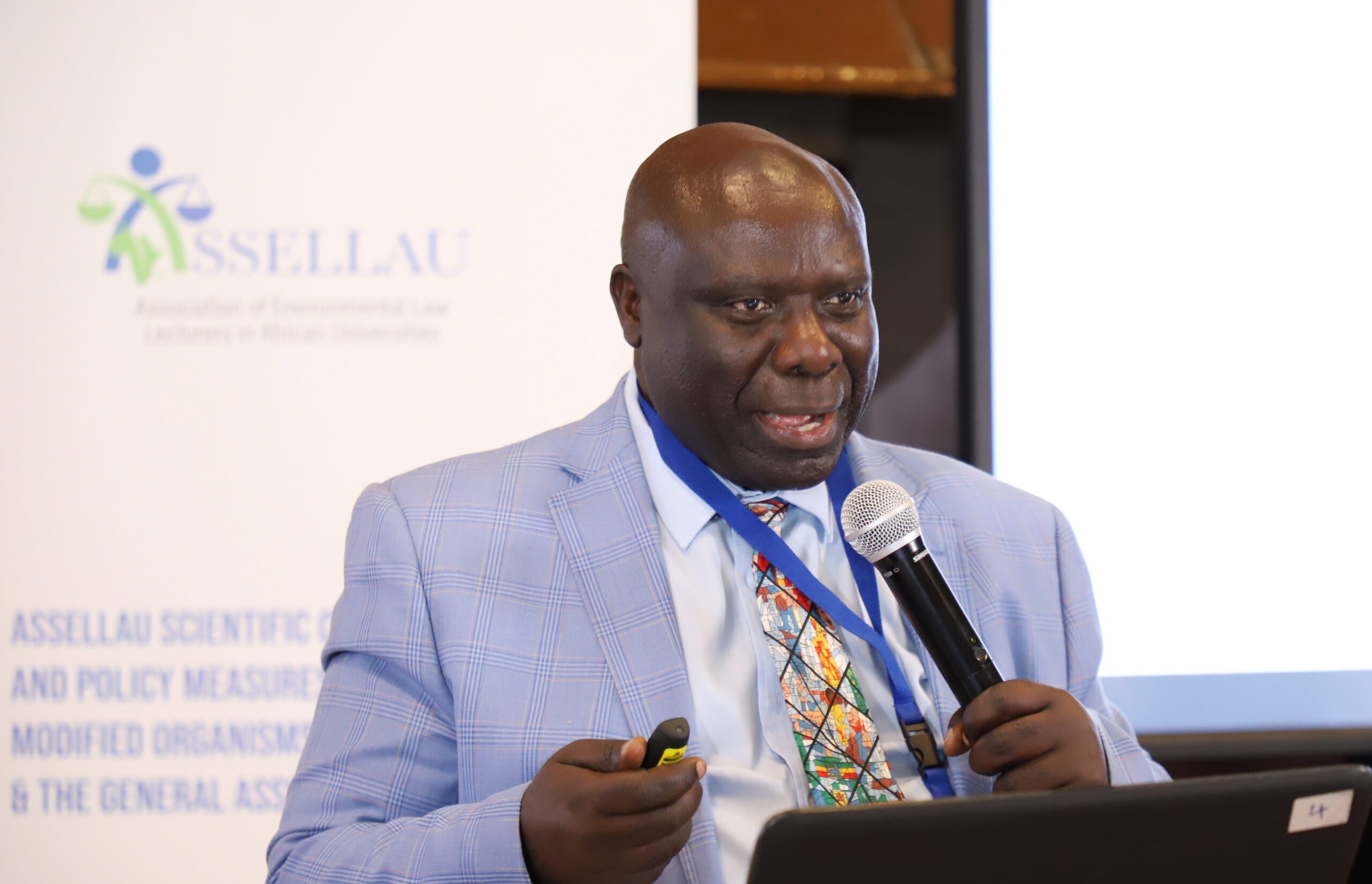
Emmanuel Kasimbazi, a law professor at Uganda’s Makerere University, said scientists need to understand the law, just as lawyers need to have a working knowledge of science to work together toward developing robust regulation frameworks for biotechnology.
“Environmental law is important for you as scientists and for us as lawyers because environmental law regulates the use and the protection of the environment. You cannot develop your scientific discovery without the law. The law regulates those discoveries’ risks, benefits, and implications,” Prof Kasimbazi said.
“We analyzed African legal systems and were surprised that many African countries are not yet equipped with biotechnology laws.”
Prof Oliver Ruppel from the University of Stellenbosch said the take-home message from the ASSELLAU conference was that law is an important tool because it can incentivize or penalize. At the same time, science can inform the law to do something.
“In that regard, we also analyzed legal systems throughout Africa and were surprised to see that many African countries are not yet equipped with biotechnology laws capable of dealing with the developments we need,” said Rupel.
During the ASSELLAU conference, it emerged that only seven African countries have laws regulating GMOs.
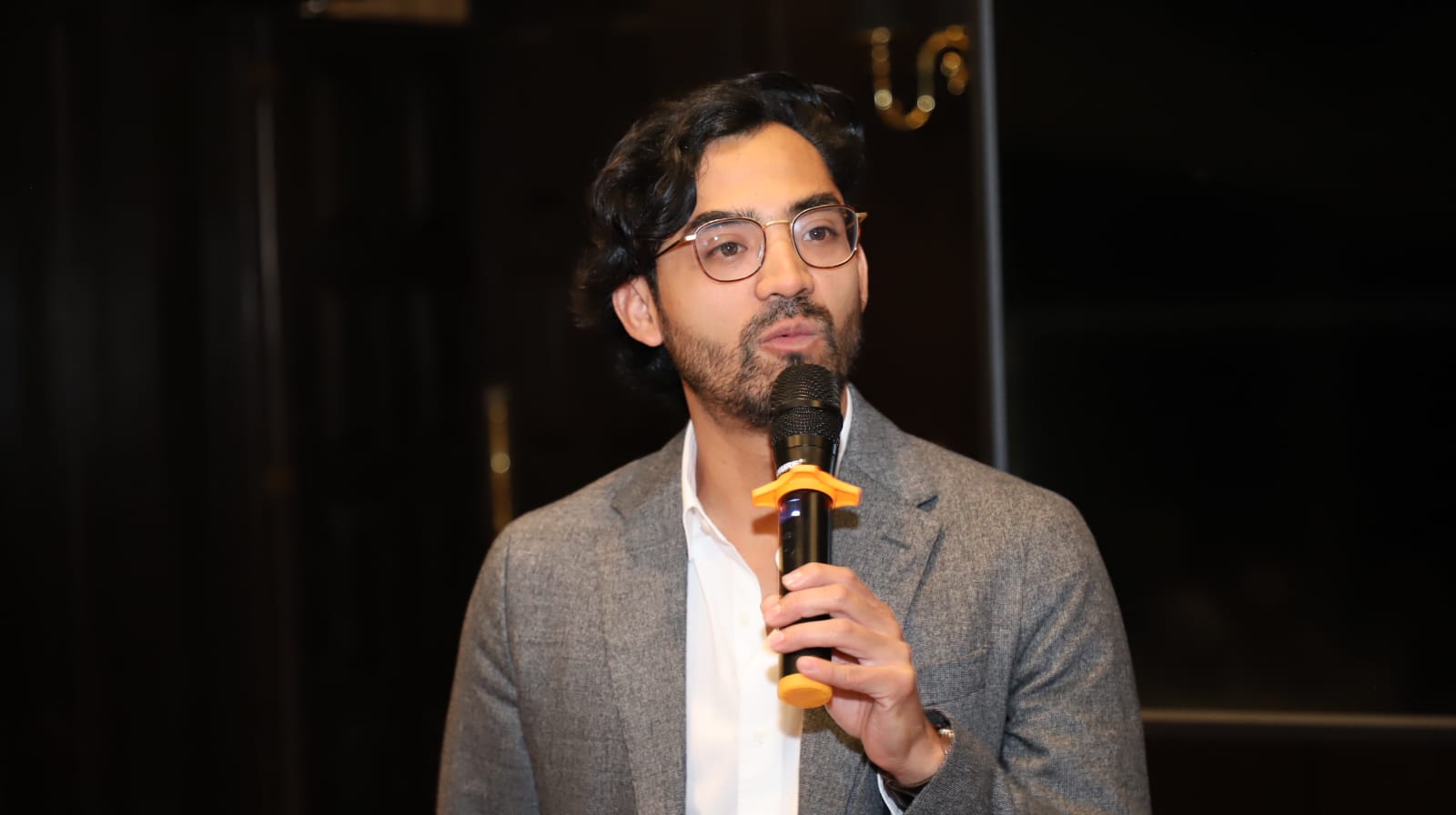
Pablo Orozco, the Global Director for Policy for the Alliance for Science, said as stakeholders speak with each other on biotech development, so should countries in the Global South on the regulation of these technologies because they have a lot to learn from one another.
“Countries in the Global South need to get together and think through the common challenges they all face, existing gaps, what lessons to learn from each other, and how they can effectively move forward.”
He said everyone wants to leverage these technologies to benefit humans and the world, which is changing thanks to these developments.
“Africa, Latin America, and Asia are no longer lagging. We have biosafety systems in place, expertise, and technologies that will take us to where we haven’t gone before,” said Orozco.
“South-South collaboration is already happening when we attend conventional biological diversity meetings. We are already learning from each other through these meetings and technology transfer.”
Harmonizing the regulations
He added that it is important for countries in the Global South to get together and think through the everyday challenges they all face, existing gaps, what lessons to learn from each other, and how they can effectively move forward.
Dr Alejandra Ferenczi, the Biosafety Manager in Uruguay’s Ministry of Livestock, Agriculture and Fisheries, said that at the South-South Collaboration for Innovations Workshop, they discussed three possibilities: the possibility of harmonizing the regulations in the new breeding techniques, definitions, information for developers, and criteria used to define if a final product is a GMO or not.
“All the resistance around GMOs in food, which you don’t find in medicines, is because food is part of our identities and ritual, and we need to listen to the underlying belief systems that inform communities.”
“It is also possible to realize that we share the value of biotechnology because they are simply new tools we need to breed more food and protect our environment. Therefore, we have the opportunity with these new breeding techniques to develop products that provide local solutions to our problems,” Prof Ferenczi said, adding that they also discussed the possibility of democratizing the biotechnology tools to harmonize the approval procedures for NBTs.
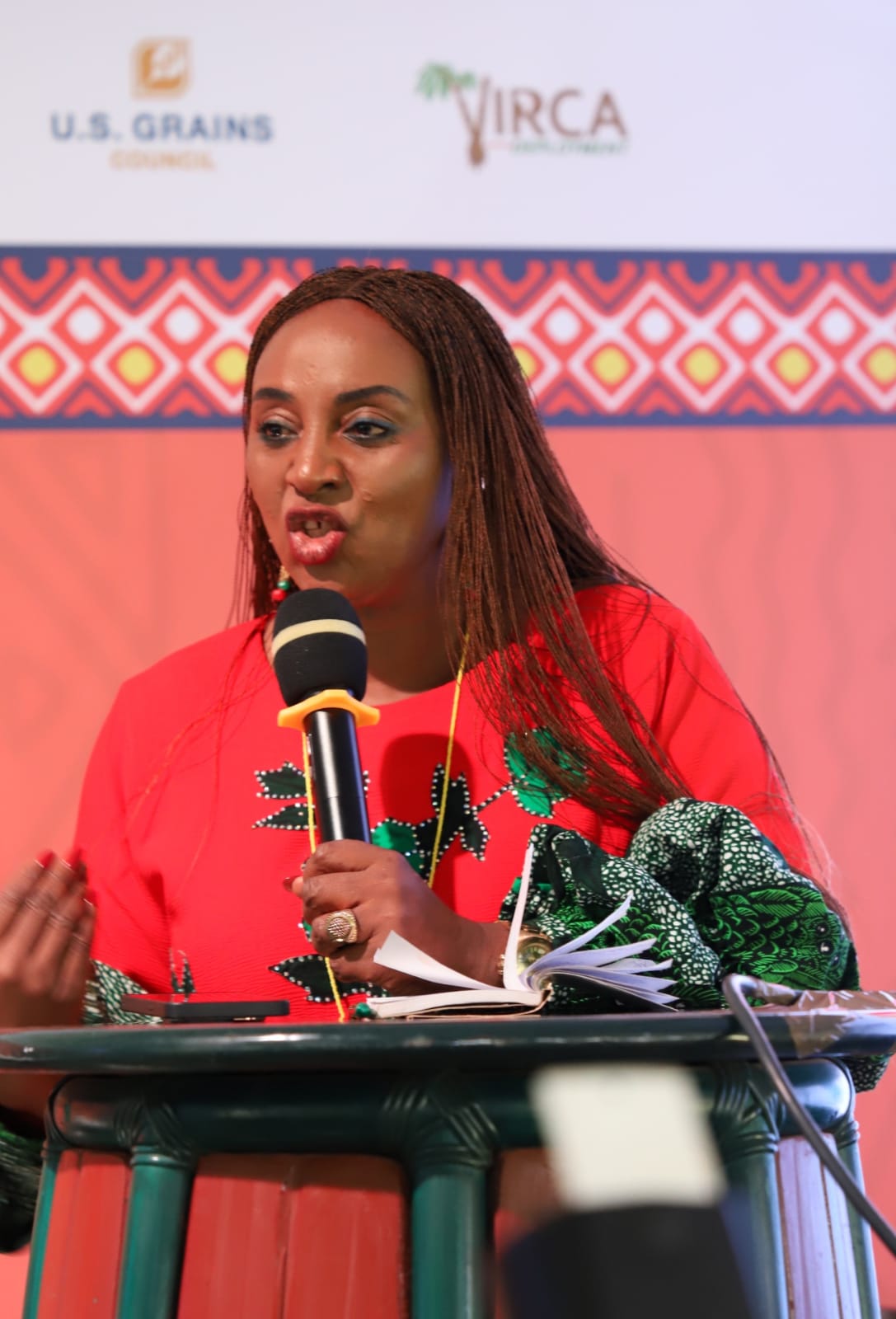
The session was moderated by Alliance for Science Executive Director Sheila Ochugboju, who highlighted four contentions on biotech issues.
They are knowledge vacuum, faith and culture, the language used in messaging, and amplifying the farmer’s voices.
Employ value-based messaging
“All the resistance around GMOs in food, which you don’t find in medicines, is because food is part of our identities and ritual, and we need to listen to the underlying belief systems that inform communities,” said Dr Ochugboju.
“We also need to employ value-based messaging. So, we have translated our basic facts and myths on GMOs so we can different communities in a language they can easily understand.”
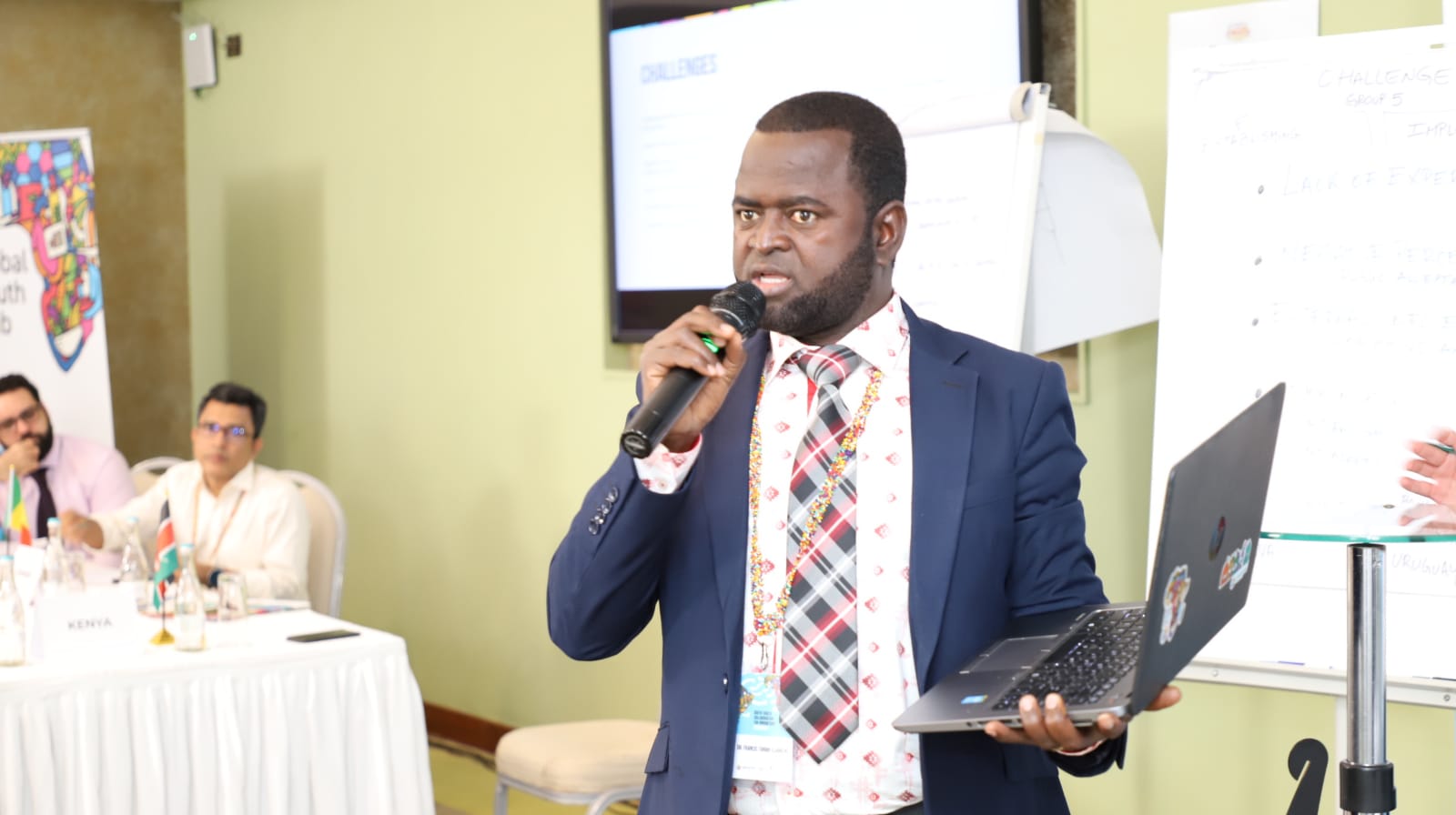
This was buttressed by Dr Francis Djankpa, the Molecular and Cellular Biologist at Ghana’s University of Cape Coast, who said the future of biotech lies in communication strategy.
Dr Djankpa said the African Union Development Agency (AUDA-NEPAD) has led eight African countries in developing a communication strategy.
Guiding principles of the communication strategy include consistency, clarity, localizing the message, transparency, and targeting the right audiences.
“So, as I speak, Ghana, Kenya, Ethiopia, Nigeria, Malawi, Zimbabwe, Mozambique, and Burkina Faso have their communication strategies and are ready for implementation. The strategy acknowledges national and institutional regulatory bodies,” he said.
He said the guiding principles of the communication strategy include consistency, clarity, localizing the message, transparency, and targeting the right audiences.
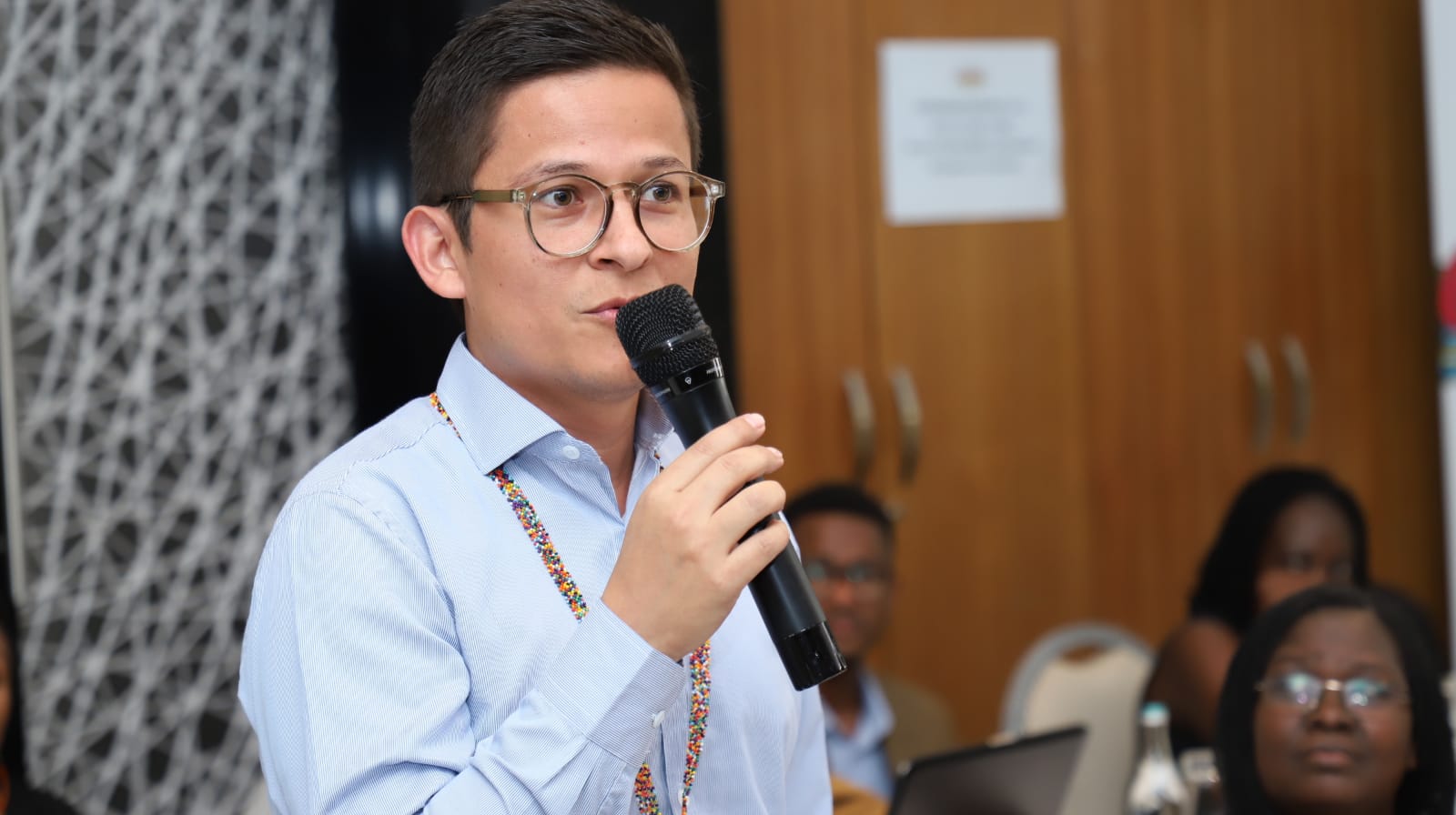
Diego Dalvis, the Technical Seeds Advisor at the Colombian Agricultural Institute (ICA), underscored the need to engage the general public and provide accurate information on biotech developments.
Rapid revolution of innovations
“People need facts, real developments with local impacts and results that positively affect our society and the environment,” said Dalvis.
“We need to build capacity not only in our local research institutions and the academia but also with government agencies. We need this because it is important to keep updated on the rapid revolution of these innovations and technologies.”
_______________________________________________________________________________________________
Godfrey Ombogo is an editorial consultant, consulting science editor, and writer for Media for Environment, Science, Health and Agriculture (MESHA) in Kenya. He has been a reporter, sub-editor, and quality assurance editor at Daily Nation, The Star, and The Standard, respectively. He has also written for Talk Africa, an online multimedia content platform.
